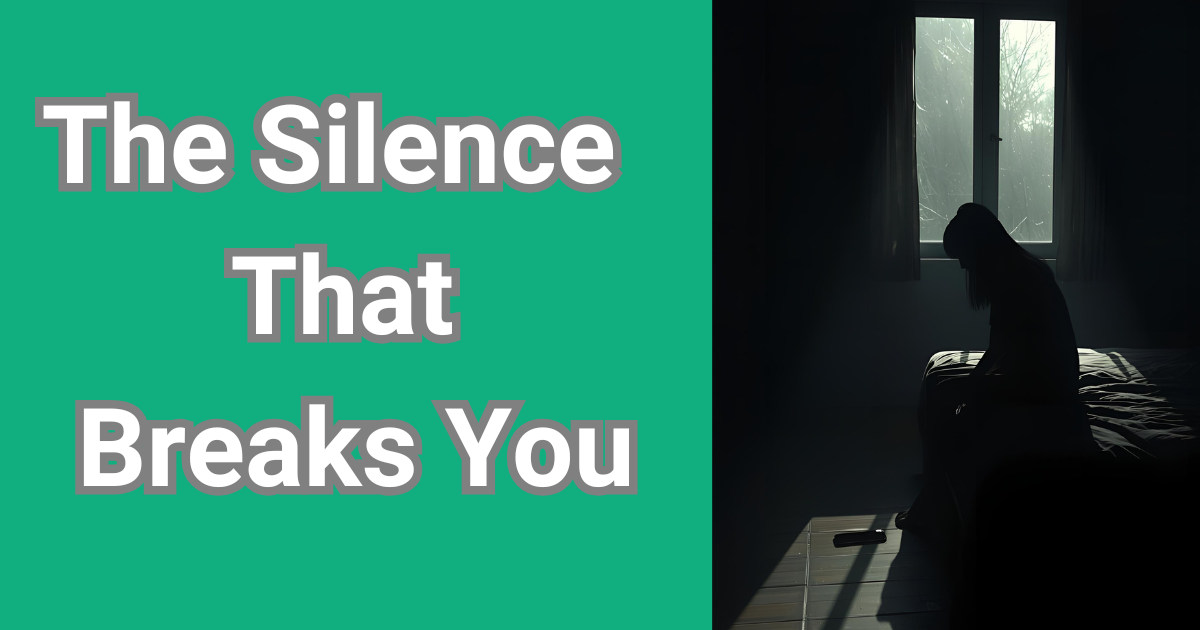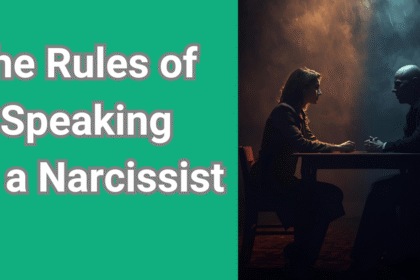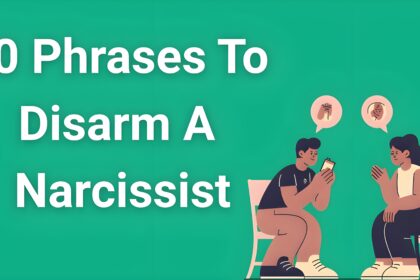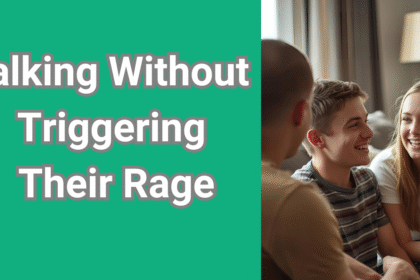Picture this: Your phone hasn’t buzzed with their name for three days. Or maybe it’s been three weeks. Perhaps you’re sitting here after three months of complete silence, wondering if they’re ever coming back. The question burning in your mind? “How long can a narcissist go without talking to you?”
- Understanding Why You’re Even Asking How Long a Narcissist Can Go Without Talking to You
- The Real Answer: How Long Can a Narcissist Actually Go Without Talking to You?
- What Their Silence Really Means (Spoiler: It’s Not What You Think)
- Why This Question Reveals You’re Still Trauma-Bonded
- How Long Can a Narcissist Go Without Talking to You? The Strategic Patterns
- Breaking Free: What to Do While You’re Waiting for an Answer That May Never Come
- Frequently Asked Questions About Narcissistic Silent Treatment
- The Most Important Thing You Need to Understand
I get it. I’ve spent seven years helping people navigate this exact emotional minefield, and let me tell you something that might surprise you: you’re asking the wrong question entirely.
Here’s what I mean. When my client Sarah first came to me, she’d been waiting four months for her narcissistic ex to contact her. Four months of checking her phone every few minutes, analyzing his social media posts, and driving herself crazy wondering when he’d reach out. She was asking the same question you’re asking: “How long can he go without talking to me?”
But here’s what Sarah didn’t realize—and what most people don’t understand—is that this question reveals something crucial about your emotional state. You’re not just curious about their communication patterns. You’re trauma-bonded, and their silence has become a form of psychological control that’s working exactly as they intended.
Let me teach you what’s really happening here, because once you understand the psychology behind their silence, everything changes.
Understanding Why You’re Even Asking How Long a Narcissist Can Go Without Talking to You
Think of your brain right now like a phone with a dying battery that keeps trying to connect to a wifi network that’s constantly dropping the signal. That’s essentially what happens when you’re wondering how long a narcissist can go without talking to you—your brain is desperately trying to reconnect to a source that’s designed to be unpredictable.
This isn’t your fault. Narcissists are masters of what psychologists call “intermittent reinforcement.” Imagine if your favorite coffee shop sometimes gave you free coffee, but you never knew when. Some days you’d get it, other days you wouldn’t, and there’d be no pattern you could figure out. You’d probably find yourself going back more often, hoping today would be the day, right?
That’s exactly what’s happened to your emotional system. Their unpredictable communication—sometimes showering you with attention, sometimes going completely silent—has created a psychological dependency. Your brain has learned to crave their contact, and now their silence feels like withdrawal from a drug.
The cruel irony? While you’re sitting here wondering when they’ll reach out, they’re often living their lives completely unburdened by thoughts of you. This isn’t because you don’t matter—it’s because narcissists process relationships fundamentally differently than healthy people do.
The Real Answer: How Long Can a Narcissist Actually Go Without Talking to You?
Here’s the honest truth that most articles won’t tell you: A narcissist can go without talking to you for days, weeks, months, years, or forever—and it has absolutely nothing to do with your worth or your relationship history.
I know that’s not the answer you wanted to hear. You probably hoped I’d say “Oh, they always come back after 30 days” or “If it’s been more than 6 months, they’re done.” But narcissistic behavior doesn’t follow neat timelines because their silence isn’t about missing you or processing emotions—it’s about control, supply, and what serves their needs in the moment.
Let me break down the different types of silence you might be experiencing, because understanding the type helps you understand the likely duration.
The Punishment Silence
Typically lasts anywhere from 3-10 days. This happens when you’ve somehow threatened their ego—maybe you called out their behavior, said no to something they wanted, or simply didn’t provide the admiration they expected. They’re training you like a pet: behave badly, lose their attention. The silence ends when they think you’ve “learned your lesson” or when they need something from you.
The Discard Silence
Can stretch for months or even years. This occurs when they’ve decided you’re no longer useful—often because they’ve found new sources of validation and attention. But here’s the kicker: they often return during what experts call “hoovering” attempts, especially if their new supply becomes unavailable or they’re feeling nostalgic for easier times.
The Strategic Silence
Varies wildly because it’s calculated for maximum psychological impact. They might go silent for just long enough to make you anxious, then reappear with love-bombing behavior. Or they might maintain radio silence while secretly monitoring your life through social media, waiting for the perfect moment to make their move.
The duration depends on factors completely outside your control: their current circumstances, whether they have other people giving them attention, their specific psychological makeup, and most importantly, whether they still see you as a source of what they need.
What Their Silence Really Means (Spoiler: It’s Not What You Think)
Here’s where I need to be your reality-check teacher for a moment. Let’s compare what your trauma bonded brain thinks their silence means versus what’s actually happening.
What you’re probably thinking: “They’re hurt and processing their emotions. They need time to realize how much I mean to them. They’re scared of their feelings for me. If I just wait patiently, they’ll come back and we can work things out. Maybe they’re testing whether I really love them.”
What’s actually happening: They’re using your emotional attachment to control your behavior from a distance. They’re busy getting their validation needs met elsewhere and don’t currently need what you provide.
They’re waiting to see how desperate you become, which gives them valuable information about how to manipulate you if they decide to return. They might be punishing you for not meeting their expectations, or they’re simply protecting their ego by avoiding accountability.
This distinction is crucial because as long as you interpret their silence through the lens of normal human emotion and attachment, you stay trapped in a cycle of hope and heartbreak that can last indefinitely.
Think about it this way: Do you need special strategies for communicating with emotionally healthy people in your life? Do you find yourself googling how to talk to a narcissist when dealing with your normal friends and family? Of course not. You only need these techniques when someone’s psychology operates outside the bounds of typical human empathy and connection.
Why This Question Reveals You’re Still Trauma-Bonded
Let me help you understand something important about why you’re asking how long a narcissist can go without talking to you. This question itself is a symptom of trauma bonding—the psychological chains that keep you emotionally tethered to someone who’s hurt you.
When you’re wondering about their silence patterns, you’re essentially trying to solve a puzzle that has no solution. You’re looking for patterns in chaos, hoping to find some way to predict or control their behavior. But here’s what I’ve learned after seven years in this field: the question isn’t “When will they contact me?” The question is “Why am I still giving them this much power over my peace of mind?”
Trauma bonding works like this: Imagine you’re in a room with a slot machine that occasionally pays out, but you never know when. The unpredictable rewards keep you pulling the lever, even when you’re losing more than you’re winning. Their intermittent attention and affection created the same psychological dependency in your brain.
Now that they’re silent, your brain is experiencing something similar to withdrawal. You’re checking your phone obsessively, analyzing their social media activity, replaying past conversations, and desperately seeking any sign they’re thinking about you. This isn’t love—it’s addiction to their validation.
The most liberating thing I can teach you is this: healthy relationships don’t require you to decode silence patterns or wait for crumbs of attention. When someone genuinely cares about you, you never have to wonder where you stand.
How Long Can a Narcissist Go Without Talking to You? The Strategic Patterns
Now let me teach you about the strategic aspects of their silence, because understanding their psychology helps you stop taking it personally.
Narcissists use silence like a chess player uses pieces—everything is calculated for maximum impact. When they go quiet, they’re not just “taking space” like healthy people might. They’re employing a sophisticated manipulation tactic designed to keep you focused on them even when they’re not present.
The “Hoover Timing” Pattern: Many narcissists have an internal clock for when they think you might be moving on. They often reappear right when you’re starting to heal—after major holidays, when they see you looking happy on social media, or when they hear through mutual friends that you’re dating someone new. It’s not because they miss you; it’s because they can’t stand the idea of you thriving without them.
The “Supply Shortage” Return: When their current sources of attention become unavailable or problematic, they often cycle back through their previous targets. You might hear from them after months of silence, not because you were on their mind, but because their newer supply sources have dried up.
The “Testing the Waters” Approach: Some use brief, seemingly innocent contact after long periods of silence—a simple “Hi, how are you?” text or liking your social media posts. They’re testing whether you’re still emotionally available to them without committing to actual interaction.
Understanding these patterns helps you realize their silence has nothing to do with your worth and everything to do with their psychological limitations.
Breaking Free: What to Do While You’re Waiting for an Answer That May Never Come
Here’s what I want you to do instead of wondering how long a narcissist can go without talking to you. I want you to start asking different questions: “How can I use this time to rebuild my life? What would it feel like to not need their validation to feel worthy? How can I protect myself from falling back into this cycle if they do return?”
First, document your emotional journey. Keep a record of how you feel each day without their contact. Notice how the intensity of missing them changes over time. Most of my clients are surprised to discover that their desperate need for contact actually decreases when they stop feeding the obsession.
Second, use their silence as a gift of time and mental space. I know it doesn’t feel like a gift when you’re experiencing it, but their absence is actually an opportunity to reconnect with who you are outside of their influence. What interests did you abandon during the relationship? Which friendships got neglected? What dreams got put on hold?
Third, if you find yourself struggling with the urge to reach out, learn some phrases to disarm a narcissist for when they inevitably do return. Because here’s the thing—most of them do come back eventually, and being prepared with boundary-setting language can help you respond from strength rather than desperation.
Fourth, seek professional support if you haven’t already. Therapists who understand narcissistic abuse can help you process the trauma bonding and develop the emotional tools you need to break free from these cycles.
Remember, the goal isn’t to wait patiently for their return—it’s to use their absence as an opportunity to build a life so fulfilling that their return becomes irrelevant to your happiness.
Frequently Asked Questions About Narcissistic Silent Treatment
A narcissist can maintain silence indefinitely after a discard—some go months, years, or never contact you again. This typically happens when they’ve found new sources of validation or decided you’re no longer useful to them. However, many return during “hoover” attempts when their current supply becomes unavailable.
Your apology may have actually reinforced their behavior by showing the silent treatment works to control you. Narcissists often extend silence after apologies because they’ve learned this tactic gives them power. They may also be testing how much you’ll chase them or punishing you for the original perceived slight.
Yes, many narcissists return after extended periods of silence, often when they need something from you or their other relationships become problematic. This “hoovering” behavior can happen after months or even years, typically timed for maximum emotional impact—like holidays, birthdays, or when they see you moving on.
Initially, they may escalate their behavior to regain control—love-bombing, recruiting others, or creating drama to force your attention. If you maintain boundaries consistently, they often eventually move on to easier targets. However, they may periodically test whether you’re still emotionally available to them.
The Most Important Thing You Need to Understand
The question “how long can a narcissist go without talking to you” assumes that their eventual contact is inevitable and desirable. But what if I told you that the most powerful thing that could happen is for you to reach a place where you genuinely don’t care if they ever contact you again?
I’ve watched hundreds of clients go through this journey, and there’s a moment—it’s different for everyone—when they realize they’re no longer checking their phone for that person’s name. They’re no longer analyzing social media posts for hidden meanings. They’re no longer organizing their life around the possibility of reconciliation.
That moment isn’t about becoming hard or bitter. It’s about recognizing your own worth and refusing to accept crumbs of attention from someone who should have been offering you a full meal of love and respect.
So instead of wondering how long they can go without talking to you, start focusing on how amazing your life can become when you stop waiting for their validation. Because the truth is, you deserve so much more than wondering when someone might decide you’re worth their time.
Your healing doesn’t begin when they come back. It begins when you stop hoping they will.
Remember: If you’re struggling to break free from obsessive thoughts about a narcissistic person in your life, professional support can make all the difference. Your emotional freedom matters more than any relationship that requires you to lose yourself to maintain it.





